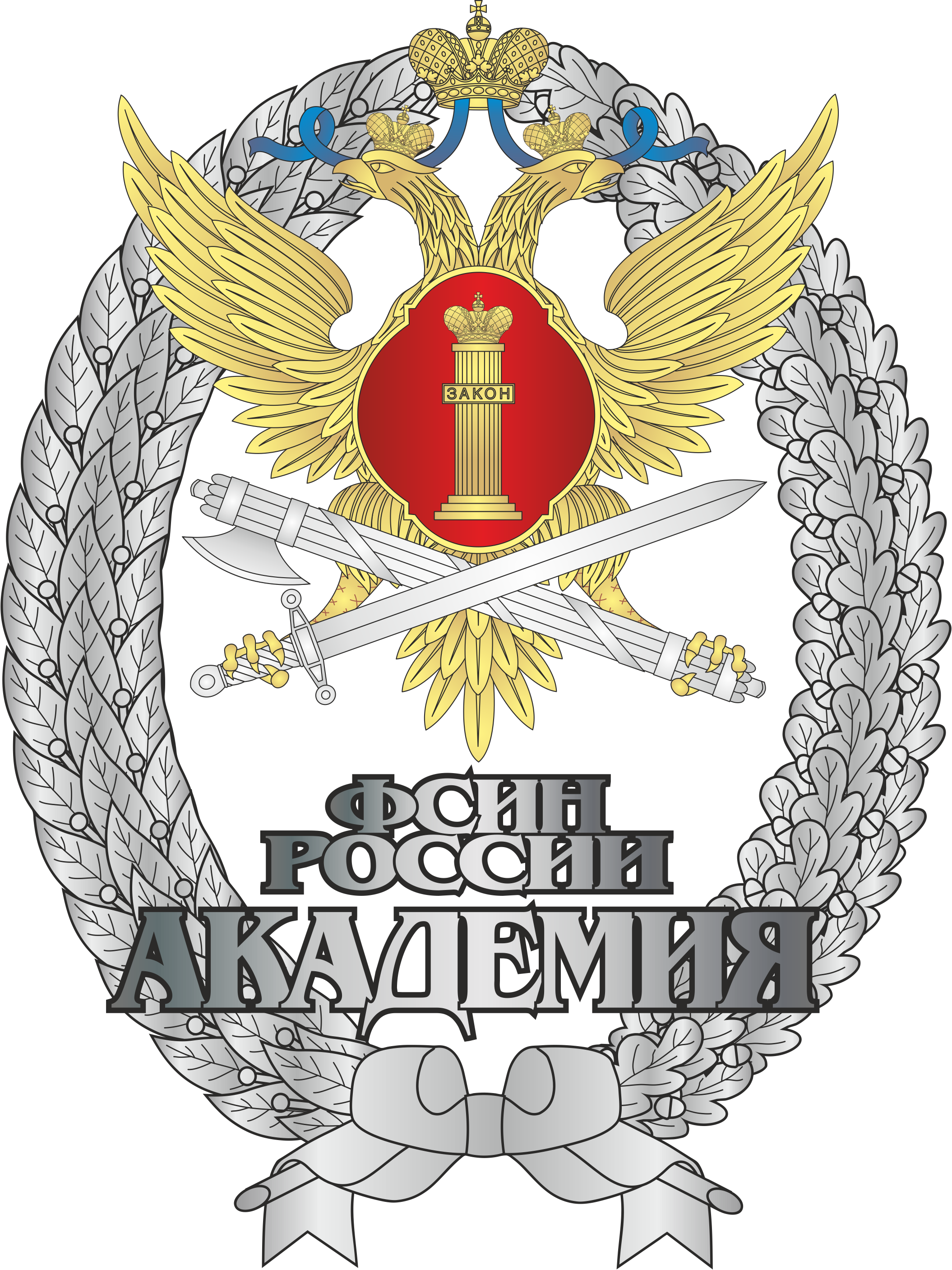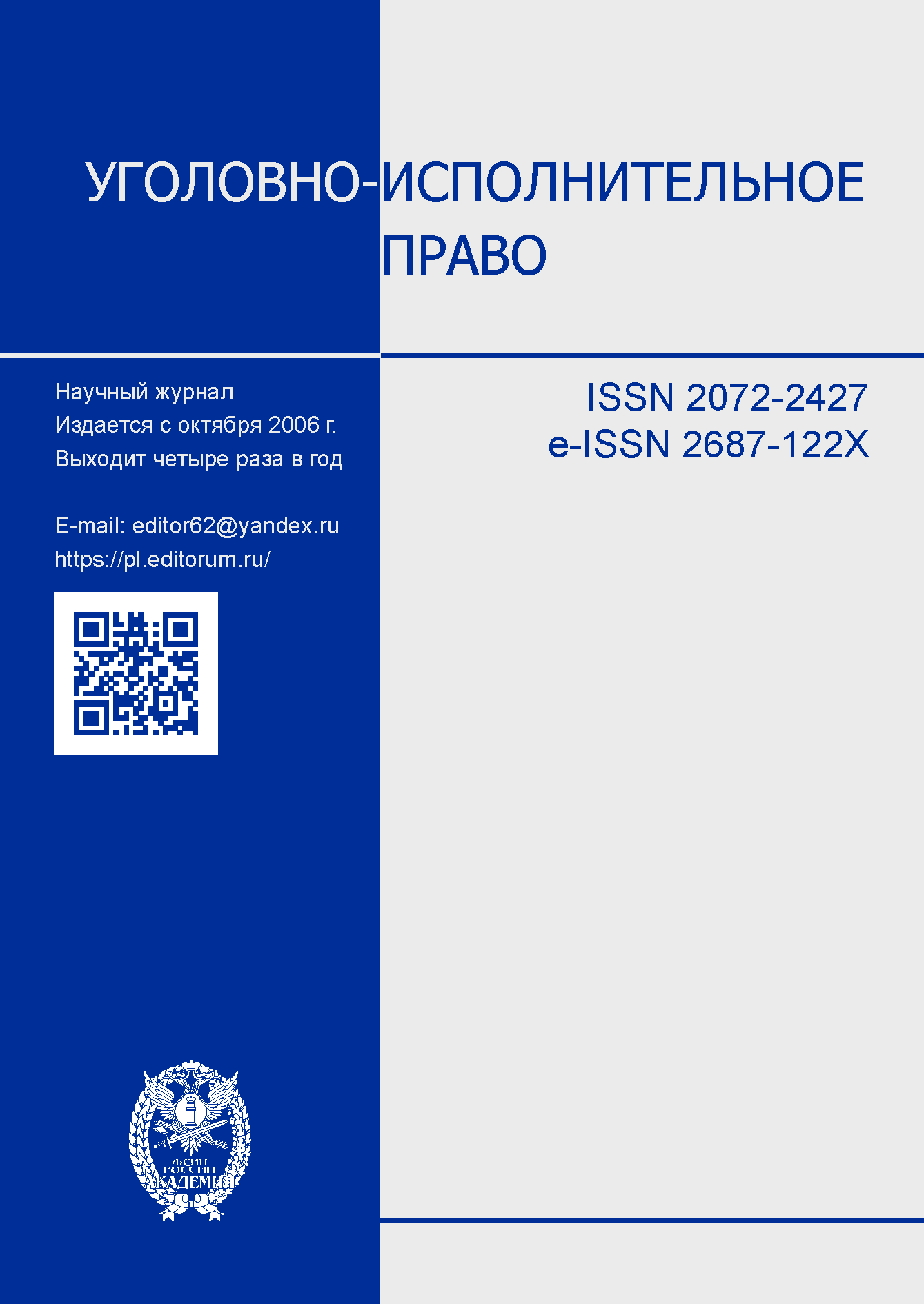Ryazan', Russian Federation
UDC 343.8
The article identifies and analyzes the provisions of penal and other legislation that provide unnecessarily wide discretion or the possibility of choosing opposite decisions by correctional officers and judges when assessing the behavior of a person sentenced to imprisonment. It is concluded that the imperfection of penal enforcement and other legislation is a corruption-causing factor mainly when imposing penalties on a convicted person, changing the conditions of serving a sentence, recognizing him as a malicious violator of the established procedure for serving a sentence, as well as resolving the issue of his parole or replacing the unserved part of the punishment with a milder type of punishment.
shortcomings of legislation, corruption-causing factor, assessment of the behavior of a convicted person, imposition of penalties, changing the conditions of serving a sentence, parole, replacement of the unserved part of the punishment with a milder type of punishment
1. Kapinus, O. S. 2018, ‘Criminological investigation of the personality of a corrupt criminal’, Journal of Foreign Legislation and Comparative Law, iss. 1(68), pp. 95–101.
2. Matskevich, I. M. & Aminov, I. I. 2016, ‘Criminological characteristics of corruption in the penal enforcement system’, Eurasian Law Journal, iss. 11(102), pp. 217–221.
3. Sereda, I. M. 2016, ‘Some issues of improving the appointment and execution of criminal penalties for crimes against the tax system’, International penitentiary journal, iss. 1, pp. 40–43.
4. Stebeneva, E. V. 2017, ‘Some problems of legal regulation of anti-corruption’, in Crime prevention system: current state, problems and development prospects: collection of materials of the annual interdepartmental round table, pp. 211–214, St. Petersburg.
5. Urda, M. N. 2020, ‘The concept of migration Crime Risk Management’, Bulletin of the Russian Law Academy, iss. 3, pp. 57–64.
6. Korotkov, N. N. 2015, ‘Type of correctional institution and conditions of serving a sentence of imprisonment for multiple crimes’, Lex Russica, vol. 106, iss. 9, pp. 20–31.
7. Kunts, E. V. 2023, ‘Educational work with prisoners sentenced to imprisonment: issues of theory and practice’, Man: crime and punishment, vol. 31(1–4), iss. 2, pp. 287–291.
8. Polosukhina, O. V. 2023, ‘Some problems arising when applying incentive measures to convicts’, Penal law, vol. 18(1–4), iss. 4, pp. 480–488.
9. Savushkin, S. M. 2023, ‘Risk assessment of particularly dangerous convicts’, Theory and practice of socio-humanitarian sciences, iss. 4(24), pp. 134–138.
10. Stepanov, V. V. 2011, ‘Behavior during the period of serving a sentence as a criterion for assessing the degree of correction of those sentenced to imprisonment’, Criminalist Library, iss. 1, pp. 288–292.
11. Badamshin, I. D. & Shakhmaev, M. M. 2014, ‘Determination of criteria for correction of convicts on parole from serving their sentence’, Legal Science and law enforcement practice, iss. 3(29), pp. 66–72.
12. Beketov, A. O., Karpov, K. N. & Stebeneva, E. V. 2021, ‘Interpretation of the conditions for the application of parole from serving a sentence’, Law enforcement, vol. 5, iss. 2, pp. 185–191.
13. Ivanov, A. A. 2014, ‘The requirements of the principle of individualization of the execution of punishment as an important factor in countering corruption and subjectivity of the institution of parole’, Current problems of economics and law, iss. 1, pp. 32–38.
14. Krymov, A. A. & Skiba, A. P. (eds) 2018, Conflicts of legislation in Russia and a number of countries (short scientific commentary): monograph, 3rd edn, UNITY-DANA, Moscow.
15. Myakhanova, A. N. & Sinkov, D. V. 2018, ‘On the issue of corruption during parole’, Bulletin of the Omsk Law Academy, vol. 15, iss. 3, pp. 292–297.
16. Pupysheva, L. A. 2017, ‘Countering corruption in the field of parole from serving a sentence’, Bulletin of the Institute: crime, punishment, correction, iss. 1(37), pp. 49–53.
17. Krymov, A. A. & Tyabina, Yu. A. 2016, ‘Problems of legal regulation of the prosecutor’s participation in the execution of a sentence’, Bulletin of the Academy of the Prosecutor General’s Office of the Russian Federation, iss. 2(52), pp. 62–66.
18. Nikolyuk, V. V. & Pupysheva, L. A. 2022, ‘Problems of the administration of justice at the stage of execution of a sentence in the context of the positions of the Constitutional Court of the Russian Federation and the Supreme Court of the Russian Federation on the right of a convicted person to judicial protection’, Legislation and practice, iss. 2(49), pp. 39–47.
19. Urazbaev, R. Sh. & Barabanova, S. V. 2018, ‘Contradiction of the grounds for parole to the purposes of punishment established in Part 2 of Article 43 of the Criminal Code of the Russian Federation’, Bulletin of the Far Eastern Law Institute of the Ministry of Internal Affairs of Russia, iss. 1(42), pp. 73–79.
20. Krymov, A. A. 2015, ‘The rights of a representative of the administration of a correctional institution in resolving issues related to the execution of a sentence by the court’, Legal thought, iss. 2(88), pp. 103–107.
21. Serebrennikova, A.V. 2021, ‘Problems of execution of sentence: penal issues’, in V International Penitentiary Forum “Crime, Punishment, Correction” (timed to coincide with the Year of Science and Technology in 2021 in the Russian Federation): collection of abstracts of speeches and reports of participants,vol. 1, pp. 230–234, Ryazan.
22. Skiba, A. P. 2015, ‘Some problems of differentiation of criminal procedure and penal enforcement regulation’, Penal law, iss. 2, pp. 9–13.
23. Debolsky, M. G. 2014, ‘Problems of the risk of recidivism during the parole of convicts’, Psychology and law, iss. 1, pp. 35–49.
24. Kachalov, V. I. 2021, ‘Prospects for improving the court’s resolution of issues on parole of a convicted person from serving a sentence’, Russian Justice, iss. 2, pp. 78–89.
25. Kashuba, Yu. A. & Skiba, A. P. 2011, ‘Institute of Parole: a new Perspective’, Man: crime and punishment, iss. 1, pp. 14–17.
26. Teplyashin, P. V. 2014, ‘A multi-criteria approach to the competitive selection of convicts for parole’, Prologue, iss. 4(8), pp. 37–44.











